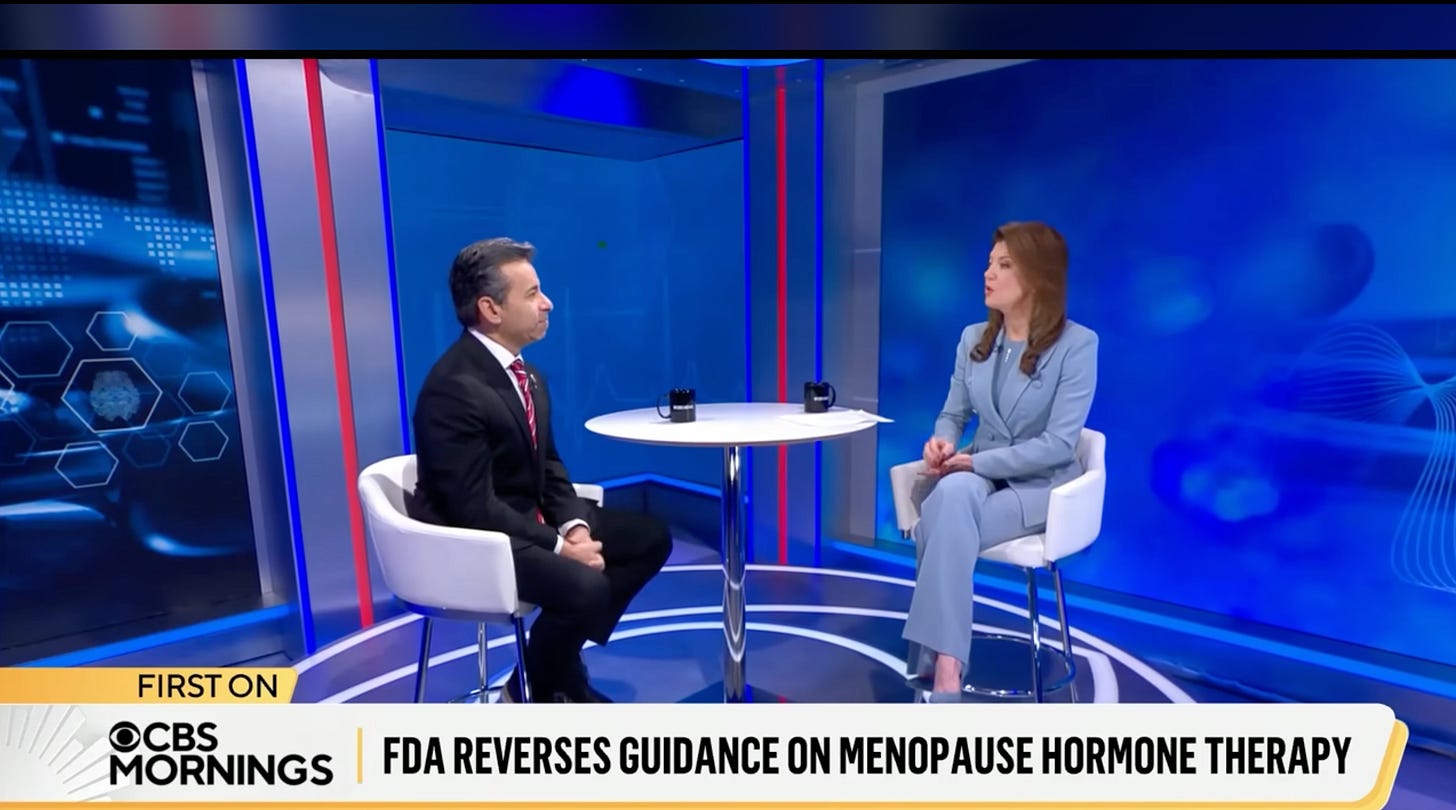The menopause moment: progress or overcorrection?
As the FDA lifts its black box warning on HRT, women are now being urged to begin treatment within ten years of menopause onset. Is this shift grounded in evidence or emotion?
In the past week, when the FDA announced it was removing the black box warning from hormone replacement therapy (HRT), the media response was nothing short of euphoric.
Morning shows ran breathless coverage, and one female host even admitted she became “teary” after hearing the news.
FDA Commissioner Dr Marty Makary, leading the charge, called it the end of the “fear machine” that had “denied 50 million women” treatment — “a real American tragedy,” he said.
His rhetoric was powerful — emotional, even.
But amid the exuberant celebrations, few have paused to ask what this moment really represents. Is it a long-overdue correction, or another swing of the pendulum from one extreme to the other?
Because behind the headlines lies a more unsettling possibility — that in its eagerness to atone for past mistakes, the FDA may now be discarding the most rigorous evidence we have and embracing far weaker evidence to justify removing safety warnings.



